If you’re looking to boost your overall health and wellness, it’s important to consider incorporating supplements into your daily routine. These little powerhouses can provide your body with the essential nutrients it needs to thrive. But with so many options available, it can be overwhelming to know which ones to choose. In this article, we will explore the four main supplements you should be familiar with, helping you make informed decisions about your own health. Let’s dive in and discover the key players in the world of supplements!
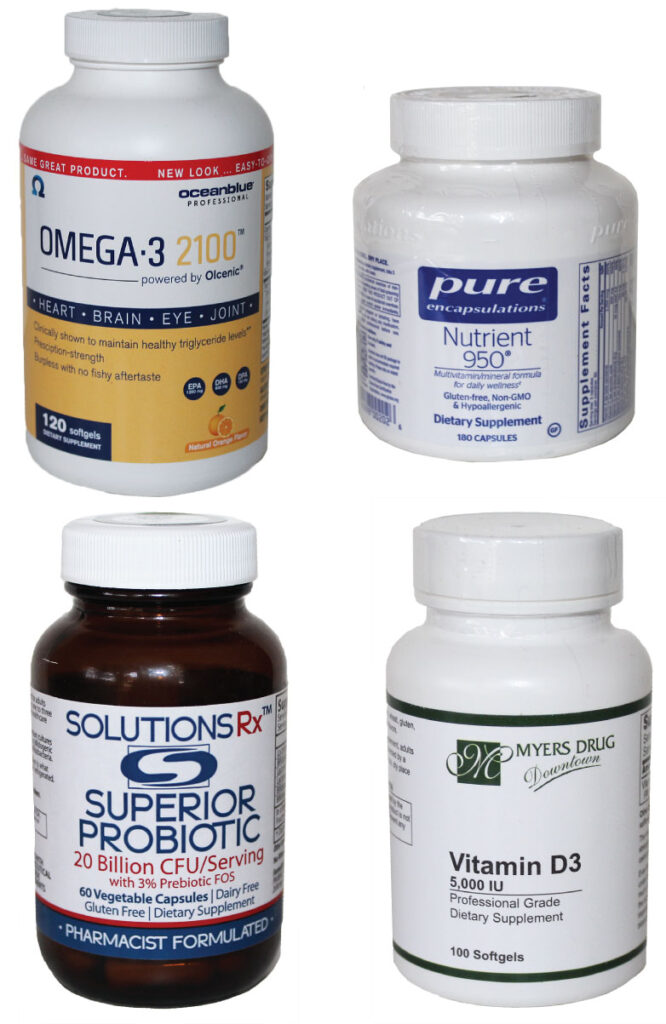
This image is property of www.myersdrug.com.
Vitamins
Vitamin C
Vitamin C, also known as ascorbic acid, is a water-soluble vitamin that plays a crucial role in maintaining your overall health. It is well-known for its immune-boosting properties and is often recommended to help prevent and treat the common cold. In addition to supporting your immune system, vitamin C is also involved in collagen production, which helps maintain the health of your skin, bones, and blood vessels. It is an antioxidant that protects your cells from damage caused by free radicals, which are unstable molecules that can contribute to aging and diseases like cancer.
Vitamin D
Vitamin D, often referred to as the sunshine vitamin, is unique compared to other vitamins because your body can produce it when your skin is exposed to sunlight. It is also found naturally in a few foods, including fatty fish, egg yolks, and fortified dairy products. Vitamin D is essential for maintaining healthy bones and teeth, as it helps your body absorb calcium and phosphorus from the food you eat. In addition to its role in bone health, vitamin D also plays a crucial role in supporting your immune system, regulating mood, and reducing inflammation.
Vitamin B12
Vitamin B12, also known as cobalamin, is a water-soluble vitamin that is essential for the formation of red blood cells and DNA synthesis. It is primarily found in animal-based foods, such as meat, fish, eggs, and dairy products. Vitamin B12 plays a crucial role in maintaining the health of your nervous system and brain function. It is also involved in energy production, helping to convert the food you eat into usable energy. Because vitamin B12 is primarily found in animal products, individuals following a vegan or vegetarian diet may be at risk of deficiency and should consider supplementation or fortified foods.
Vitamin A
Vitamin A is a fat-soluble vitamin that is important for maintaining good vision, promoting healthy skin, and supporting the immune system. There are two main forms of vitamin A: retinoids, which are found in animal-based foods, and carotenoids, which are found in plant-based foods. Retinoids are most easily absorbed by the body and are important for maintaining healthy vision, particularly in low light conditions. Carotenoids, like beta-carotene, are antioxidants that help protect your cells from damage caused by free radicals. Vitamin A also plays a role in maintaining the health of your skin, mucous membranes, and immune system.
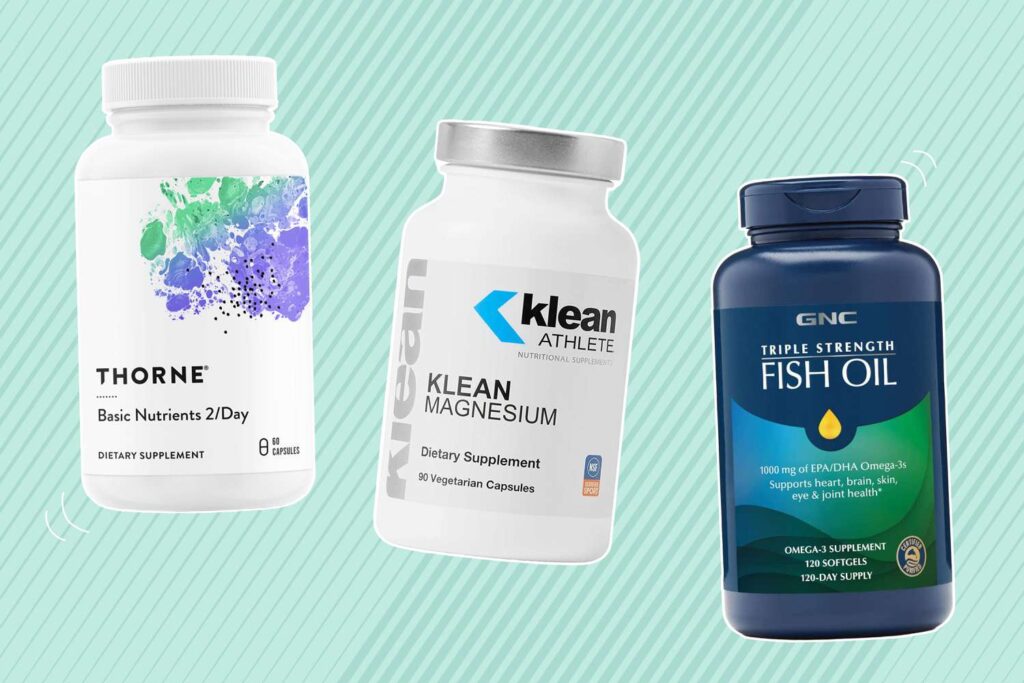
This image is property of www.verywellfit.com.
Minerals
Calcium
Calcium is a mineral that is essential for maintaining strong bones and teeth. It is also necessary for proper muscle function, nerve transmission, and blood clotting. Your body does not produce calcium, so you must obtain it through your diet or supplementation. Dairy products, leafy greens, and fortified foods are excellent sources of calcium. Adequate calcium intake is especially important during childhood and adolescence, as this is when bones are still growing and developing. Insufficient calcium intake can lead to weak bones, increasing the risk of fractures and osteoporosis later in life.
Iron
Iron is a vital mineral that is necessary for the production of red blood cells and oxygen transport throughout your body. It is an essential component of hemoglobin, which carries oxygen from your lungs to the rest of your body. Iron can be found in two forms: heme iron, which is found in animal-based foods, and non-heme iron, which is found in plant-based foods. Heme iron is more easily absorbed by your body. Iron deficiency is one of the most common nutrient deficiencies worldwide and can lead to fatigue, weakness, and impaired cognitive function. Adequate iron intake is especially important for menstruating individuals, as blood loss can deplete iron stores.
Magnesium
Magnesium is a mineral that is involved in over 300 biochemical reactions in your body. It plays a key role in maintaining normal muscle and nerve function, regulating blood pressure, and supporting a healthy immune system. Magnesium also helps maintain steady heart rhythm and supports bone health. It is found in a variety of foods, including green leafy vegetables, nuts, seeds, and whole grains. Despite its importance, many individuals do not consume enough magnesium through their diet. Magnesium deficiency can lead to muscle cramps, high blood pressure, and an increased risk of chronic conditions like heart disease and type 2 diabetes.
Zinc
Zinc is an essential mineral that is involved in numerous enzymatic reactions in your body. It plays a vital role in immune function, wound healing, DNA synthesis, and cell division. Zinc also supports normal growth and development during pregnancy, childhood, and adolescence. It is found in a variety of animal-based and plant-based foods, including meat, seafood, legumes, and whole grains. Zinc deficiency can impair immune function, delay wound healing, and increase the susceptibility to infections. It is particularly important for individuals who follow a vegetarian or vegan diet to ensure adequate zinc intake, as plant-based sources may be less bioavailable.
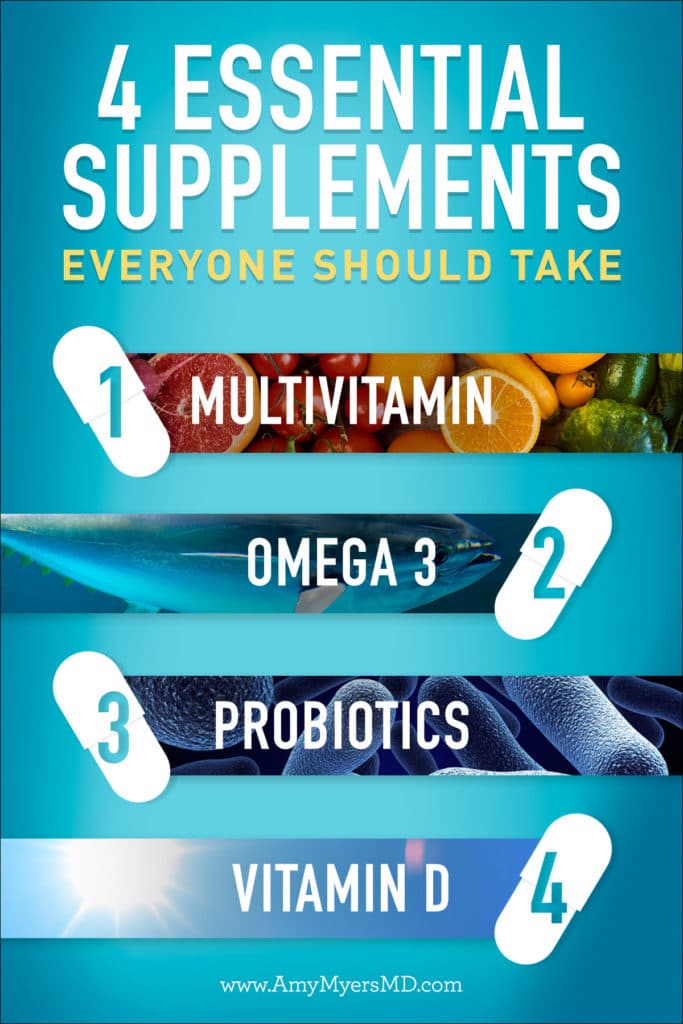
This image is property of content.amymyersmd.com.
Probiotics
Lactobacillus acidophilus
Lactobacillus acidophilus is a probiotic bacterium that is commonly found in yogurt and fermented foods. It is one of the most well-studied probiotic strains and has been shown to provide numerous health benefits. L. acidophilus helps maintain a healthy balance of gut bacteria, supports digestive health, and enhances the absorption of nutrients. It may also promote immune function and reduce the risk of certain infections. Consuming L. acidophilus as part of a balanced diet can help support a healthy gut microbiome and overall well-being.
Bifidobacterium bifidum
Bifidobacterium bifidum is another probiotic bacterium that is naturally found in the human gut. It plays a role in maintaining a healthy digestive system by breaking down carbohydrates and producing short-chain fatty acids, which provide energy to the cells lining your gut. B. bifidum has also been shown to support immune function, reduce inflammation, and improve symptoms of digestive disorders. Including B. bifidum-rich foods like yogurt and fermented vegetables in your diet can help promote a healthy gut microbiome.
Lactobacillus rhamnosus
Lactobacillus rhamnosus is a probiotic strain that is known for its ability to survive the acidic environment of the stomach and reach the intestines alive. It has been extensively studied for its benefits in digestive health, particularly in reducing the severity and duration of diarrhea associated with antibiotics or infections. L. rhamnosus may also help prevent vaginal infections, support a healthy immune system, and reduce the risk of allergies in children. Including L. rhamnosus in your diet through fermented foods or taking it as a supplement can help support your overall gut health.
Saccharomyces boulardii
Saccharomyces boulardii is a unique probiotic yeast that has been shown to provide various health benefits. Unlike bacterial probiotics, S. boulardii is resistant to antibiotics and can be taken alongside them to prevent antibiotic-associated diarrhea. It has also been shown to help alleviate symptoms of gastrointestinal disorders, such as Crohn’s disease and irritable bowel syndrome. S. boulardii supports a healthy gut microbiome, enhances gut barrier function, and modulates the immune system. This probiotic yeast can be taken as a supplement to help support digestive health and reduce the risk of certain gastrointestinal issues.
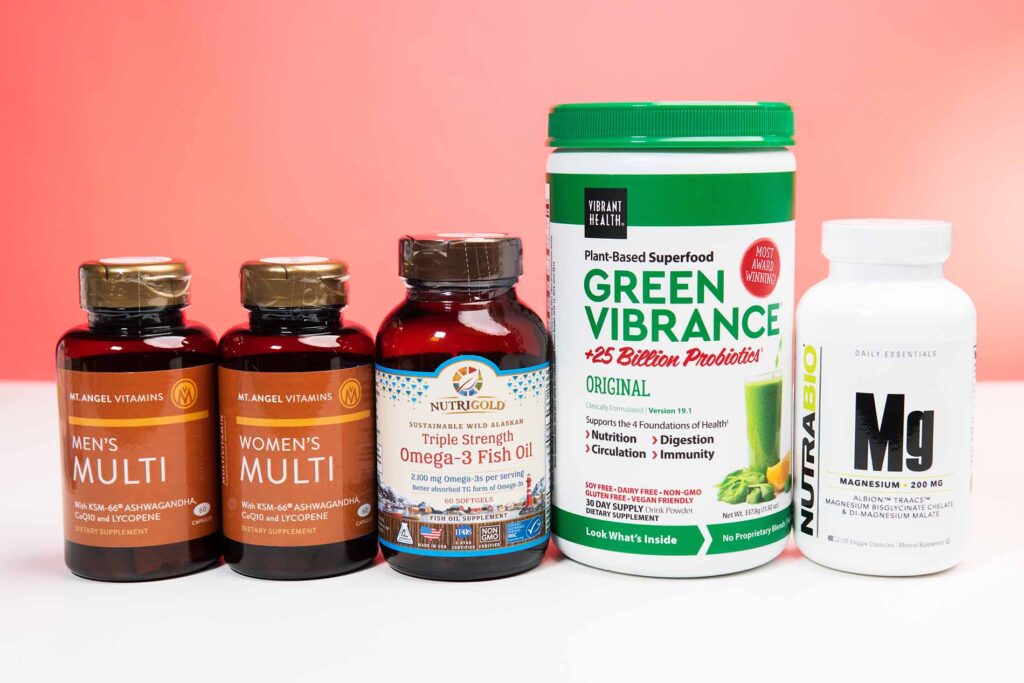
This image is property of nutritionw.com.
Omega-3 Fatty Acids
Eicosapentaenoic acid (EPA)
Eicosapentaenoic acid (EPA) is an omega-3 fatty acid that is predominantly found in fatty fish like salmon, mackerel, and sardines. It is a crucial nutrient that plays a major role in reducing inflammation in your body. EPA has been extensively studied for its cardiovascular benefits, including reducing triglyceride levels, lowering blood pressure, and preventing the formation of blood clots. It also plays a role in brain health, supporting cognitive function, and reducing the risk of mental health disorders, such as depression and anxiety.
Docosahexaenoic acid (DHA)
Docosahexaenoic acid (DHA) is another omega-3 fatty acid that is abundant in fatty fish. It is a major structural component of your brain and retina, making it essential for proper brain development and function, especially during infancy and childhood. DHA has been shown to support cognitive function throughout all stages of life, promote visual health, and reduce the risk of age-related macular degeneration. It also has anti-inflammatory properties and plays a role in maintaining a healthy heart.
Alpha-linolenic acid (ALA)
Alpha-linolenic acid (ALA) is the most common plant-based omega-3 fatty acid and can be found in flaxseeds, chia seeds, walnuts, and hemp seeds. Your body can convert ALA into EPA and DHA, although this conversion is inefficient. ALA is still beneficial for your health and has been associated with a reduced risk of heart disease, improved brain function, and a lower risk of certain types of cancer. Including plant-based sources of ALA in your diet can contribute to your overall omega-3 intake.
Omega-3 supplements
Omega-3 fatty acid supplements, such as fish oil or algae oil capsules, can provide a convenient and concentrated source of EPA and DHA. These supplements are particularly useful for individuals who do not consume enough fatty fish or follow a vegetarian or vegan diet. They have been shown to provide similar health benefits to those obtained through dietary sources, including reducing inflammation, supporting heart and brain health, and improving overall well-being. When choosing an omega-3 supplement, it is important to look for third-party testing to ensure purity and quality.
In conclusion, vitamins, minerals, probiotics, and omega-3 fatty acids play essential roles in supporting your overall health and well-being. Incorporating a balanced diet that includes a variety of nutrient-rich foods is the best way to obtain these essential nutrients. However, in certain situations, supplementation may be necessary to ensure adequate intake. Consult with a healthcare professional to determine whether supplementation is appropriate for you and to determine the appropriate dosage. Remember, supplements should never replace a healthy diet, but they can complement it to support optimal health.
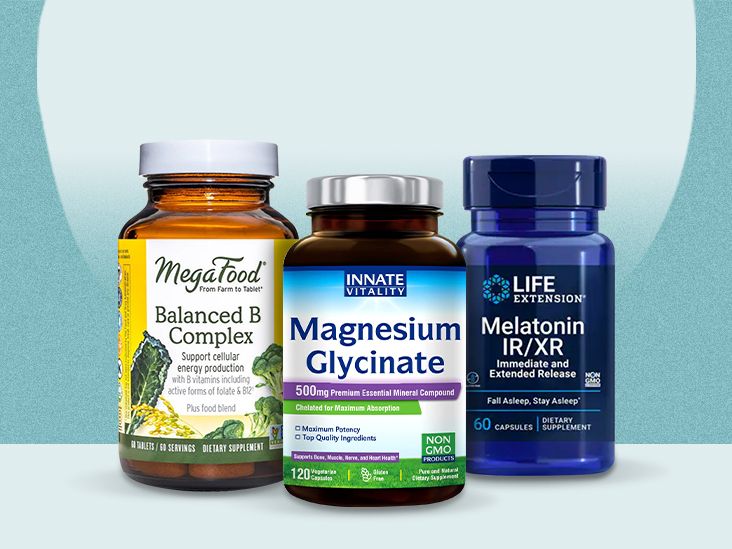
This image is property of media.post.rvohealth.io.
